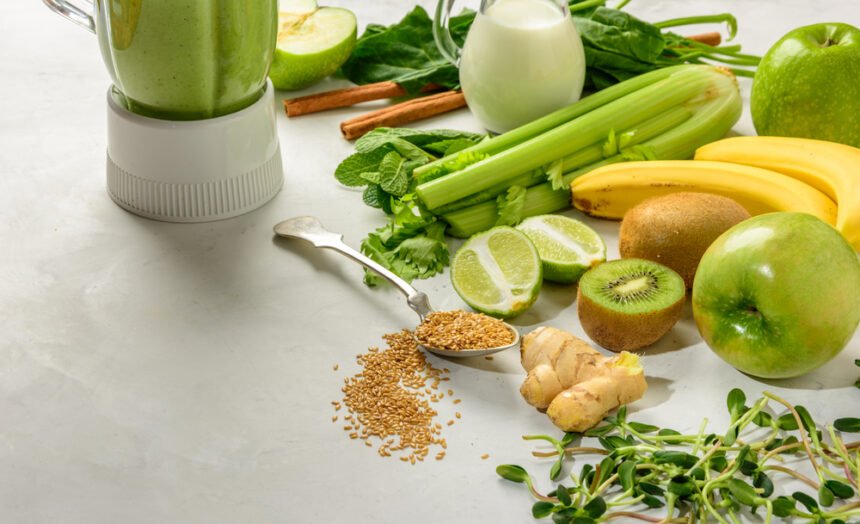Having a good immune system is one of the best gifts you can give to yourself, especially nowadays that the COVID-19 pandemic is still ongoing. But did you know that your diet plays a crucial role in your immune system?
This gives the saying “You are what you eat” credentials since it’s true when it comes to your immune system. Fruits and vegetables are guaranteed to be good immune boosters. Eat a lot of these healthy foods, and your immune system will do a better job protecting you against viruses.
However, this doesn’t mean that you have to eat only fruits from now on. For an improved immune system, you need to have a balanced diet. Your body will be more prepared for future viruses and bacteria, and if you pair it with getting a lot of good sleep and rest, you’ll even be more prepared. You can also take supplements at trytroop.com
When fruits and vegetables are not a readily available source for your necessary vitamins and minerals, you can rely on the pills widespread in almost all stores. Although, healthcare professionals strongly recommend getting them from fruits and vegetables because they’re more natural. That said, what vitamins should you prioritize to boost your immune system?
Here are some of them.
Vitamin C
Vitamin C is arguably one of the vitamins that many people are familiar with since it’s the one that healthcare professionals talk about when it comes to protection from viruses and bacteria. And yes, that’s true, vitamin C does a crucial job in protecting your body from a lot of harmful foreign substances.
Vitamin C can be found in most fruits and vegetables, namely: kale, spinach, strawberries, papaya, Brussels sprouts, and bell peppers. Actually, vitamin C can be found in so many foods that you don’t have to take supplements to make sure you have some. However, some conditions require you to take supplements. If you don’t have those conditions, you might want to talk to your doctors first before taking any vitamin C supplement.
Vitamin D
Vitamin D can be mostly found in liver, egg yolks, oily fish, red meat, and mushrooms. In all honesty, there aren’t many foods out there that contain vitamin D, unlike vitamin C. In fact, our bodies consume vitamin D from sunlight. Yes, that means if you want to take more vitamin D in your system, going out and basking in the sun is already enough on its own.
However, healthcare professionals recommend getting vitamin D between October and April. During this time, our bodies should produce at least ten micrograms of vitamin D.
With vitamin C and D, magnesium and zinc play an important role in your body’s enzymatic processes. While zinc has an anti-inflammatory effect in our body, magnesium helps our body convert vitamin D into its active and usable form. One good source of magnesium is chocolates.
Vitamin E
Our bodies need vitamin E since it’s the most potent vitamin that helps our bodies eliminate antioxidants that can be harmful to us. Also, vitamin E is responsible for over 200 biochemical reactions that take place inside your body, which is why vitamin E is critical for our immune system. Typically, vitamin E is found in plants that are high on fat, such as sunflower seeds, hazelnuts, peanut butter or peanut, almonds, etc.
Iron
The main job of iron is to carry oxygen to our cells. And it goes without saying that without iron, not only your immune system would be compromised, but your life would be in danger. Luckily, iron can easily be obtained from a lot of foods, and they also come in different forms, most commonly in meat like red meat, chicken, canned sardines, turkey, mussels, clams, oysters, etc.
However, if you’re a vegetarian, then don’t fret. Iron is not only found in meat but in vegetables as well. You can typically find iron in beans, kale, broccoli, and cereals that have iron in them.
Selenium
Selenium also plays a vital role in our immune system as it’s one of the main factors in infection prevention. One good source of selenium are animals and some of their byproducts. Brazil nuts are also fully-packed with selenium. However, be careful when eating brazil nuts that you don’t overeat since they have a daily value of more than 100% of selenium in just a single nut.
Obviously, having too much selenium can also be bad for your health. So if you want to eat brazil nuts, the recommended amount is two nuts. You can also get your dose of selenium from cottage cheese, poultry, animal meat, and liver, and from a lot of seafood.
Takeaway
Vitamins and minerals are needed in your body for it to work correctly and for it to be safe against viruses and bacteria. That said, by eating a balanced diet, you can get most of these vitamins and minerals into your body for a healthier living. Just remember not to overindulge because that would also be bad for your health, afterall, anything excessive is bad.

